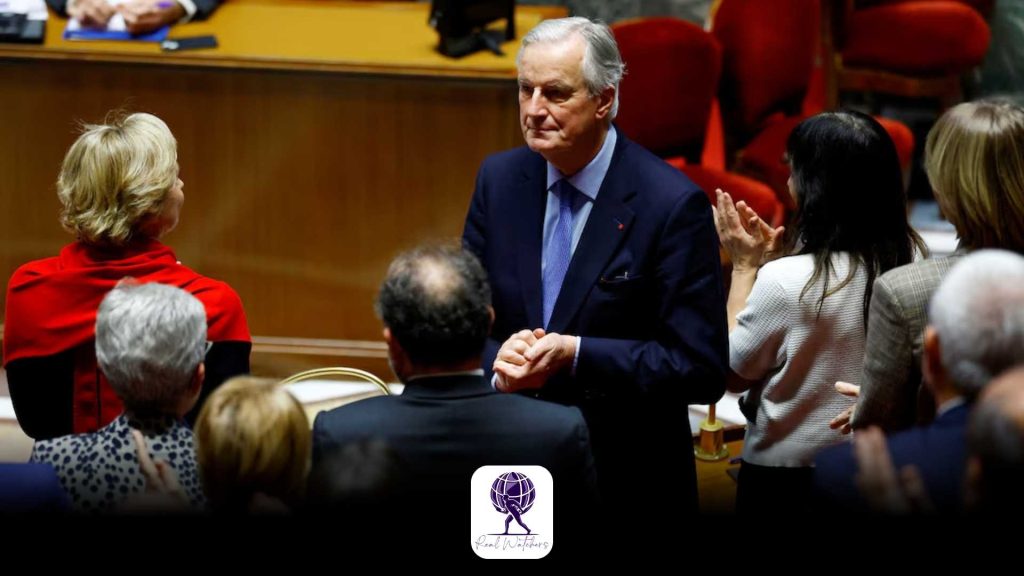French Prime Minister Michel Barnier is poised to resign on Thursday following a vote by far-right and leftist lawmakers that has led to the downfall of his government, further deepening the political crisis in the euro zone’s second-largest economy.
Barnier, a seasoned politician who assumed the role of prime minister just three months prior, is set to become the shortest-serving prime minister in contemporary French history, pending President Emmanuel Macron‘s acceptance of his resignation.
According to reports from French media, the two men engaged in a more than an hour-long meeting, after which Barnier departed from the Elysee presidential palace. Despite ongoing speculation, official confirmation of his resignation remains absent.
The incoming prime minister will encounter the same obstacles that contributed to Barnier’s exit, mainly the task of advancing the 2025 budget in a fractured parliament, all while France grapples with the urgent need to address its struggling public finances.
Attention will be directed towards Macron as he endeavours to appoint a new prime minister.
According to three sources who spoke to Reuters, there is an intention to appoint a replacement promptly. One source indicated that this appointment is desired before the ceremony to reopen the Notre Dame Cathedral on Saturday, an event that U.S. President-elect Donald Trump and other international political figures are expected to attend.
The political instability in France exacerbates the challenges facing a European Union already grappling with the collapse of Germany’s coalition government, occurring mere weeks before Trump’s anticipated return to the White House.
On Wednesday evening, Barnier faced repercussions from both the hard left and far right in a no-confidence vote stemming from his attempt to advance a social security budget in a tumultuous hung parliament without securing a vote.
“This reflects the current state of affairs in France and among its lawmakers: a mess,” said 75-year-old Parisian Paulo in an interview with Reuters.
On Thursday at 8 pm (1900 GMT), President Macron was scheduled to deliver a televised address to the nation. Reports from French media indicate that he is scheduled to meet with the head of the National Assembly around noon, followed by a meeting with the head of the Senate at 1400 GMT.
The ongoing crisis has been exacerbated by Macron’s controversial choice to initiate a snap election in June. Despite holding a mandate extending until 2027, he is encountering increasing pressure to step down.
Marine Le Pen, leader of the far-right National Rally (RN), blamed the current situation squarely on Emmanuel Macron during an interview with TF1 TV late Wednesday.
“The recent dissolution of parliament in June and the government’s censorship are direct outcomes of his policies, highlighting the significant divide between him and the French populace.”
According to a rarely utilised article of the constitution, a French president can only be removed from office if two-thirds of lawmakers convened in the High Court determine that he has significantly failed to perform his duties.
A recent poll by Toluna Harris Interactive for RTL broadcaster reveals that 64% of voters called for President Macron’s resignation. A slight majority of voters supported parliament’s decision to remove Barnier, yet concerns regarding the potential economic and political ramifications remain prevalent, according to the poll results.
According to the constitutional regulations in France, a new parliamentary election cannot occur before July.
Analysts from SocGen have indicated that the ongoing political uncertainty in France is expected to maintain a heightened risk premium on the country’s assets until potential new elections occur. Political uncertainty is expected to impact investment and consumer spending negatively.
Investors in French sovereign bonds and stocks have been on edge for weeks due to ongoing political uncertainty.
On Thursday, French bonds and stocks experienced a notable rally, which some traders attributed to profit-taking in the wake of the anticipated results of the no-confidence vote. Despite Thursday’s relief rally, uncertainty looms ahead for French markets.
The recent collapse of France’s government has resulted in a lack of direction for addressing the nation’s fiscal deficit. According to credit rating agency Standard and Poor’s (S&P), this development suggests that the country may implement less stringent austerity measures than initially anticipated.
On Wednesday, Moody’s, a competing ratings agency, announced that the recent collapse of France’s government has had a detrimental impact on its credit rating. The agency also indicated that this development heightens the risks associated with a potentially more considerable debt burden than previously anticipated.








